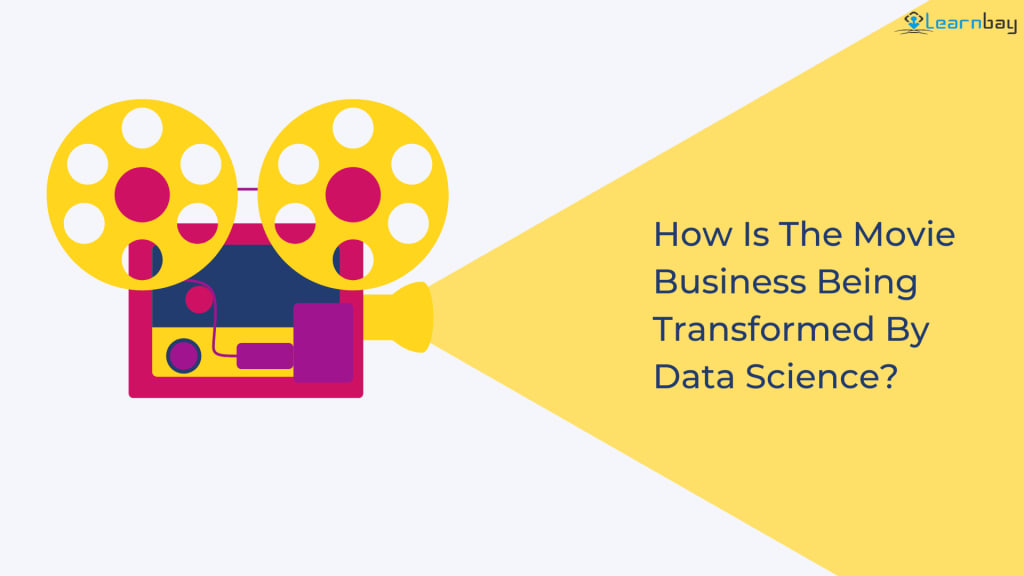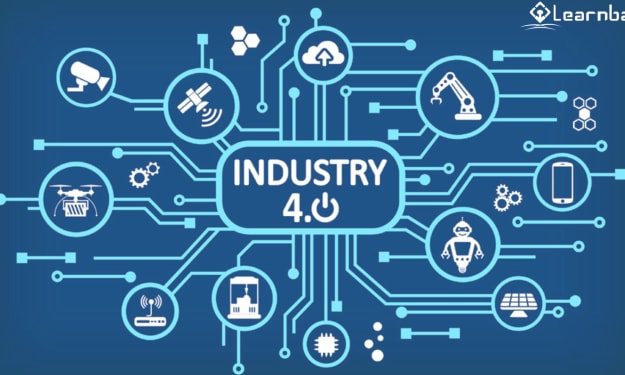
The era of concept-driven filmmaking has long since passed. In this sector, recording box office figures and ticket sales were the sole instances where data was in the spotlight. It was impossible to predict whether the movie would be a hit or a flop, and the producers were forced to rely exclusively on their own decisions. However, this is no longer the case in the current environment because alternative distribution platforms have given the players in the film industry a source of information.
Data analytics has taken the role of the traditional approach used for successful predictions. The film industry has recently turned to data science to improve the quality of its productions.
We've frequently seen instances where many movies or movie trailers go viral and generate a lot of discussions, which may or may not indicate that the film is genuinely worth the hype. In the modern age, this buzz can be understood through various internet sources, such as views and comments on videos linked to movies, search engine results, user reviews on social media, and critics' reviews of the film on review websites.
Data analysts can examine the past performance of movies with similar actors and genres to improve prediction accuracy. Data scientists are required to maintain a vast repository of data that includes the success of films by the same directors, production companies, and casts, films of the same genre, films with similar storylines, and the type of promotional channel used to predict the revenue potential of any movie accurately. For a detailed explanation of data analytics techniques used in the film industry, refer to the online data science course right away.
Initially, target audience segments were identified using sophisticated demographics based on variables like age and gender. This isn't the case anymore because of the vast amounts of data provided by social media platforms comments, likes, and shares, which make it possible for Hollywood to have a deeper understanding of its audience.
Modern film studios target the right audience with their content based on the likelihood that that audience will be interested in it and also contribute value to the studio by being interested in it.
Data Science's Place in the Film Industry
Businesses' focus on developing content has been revolutionized by comprehending significant data trends, such as viewing behavior and user feedback cycles. Social media provides exceptional insight into audience preferences, which helps to expand the data science possibilities for predicting the suitability of characters, plots, and performers on viewing behavior.
Data science and Audience engagement
The film industries need to ensure that their viewers continue to return to theaters to retain their current business models. Determining what encourages more audience engagement becomes essential for this.
The attention of the audience in a movie is influenced by several essential variables ranging from the price of movie tickets to the kinds and number of movies available, the proportion of original films to remakes or sequels, and the efficiency of marketing campaigns. Marketing tactics, the ratio of foreign blockbusters to domestic ones, the age suitability of the films, and the size, setting, and technology of the theaters.
Big Data has a significant impact on and influences each of these variables.
Data science's influence in this business is still somewhat ignored in the present because its leverage in the sector is still in its early stages.
In the current environment, improving the quality of the films offered, the effectiveness of the marketing techniques, and the number of various types of movies provided is the finest ways that data science may cogently improve audience engagement.
The quality of the movie they watch is crucial to them since, at the end of the day, the audience is only interested in the world of movies for entertainment and enjoyment. One area where data science can help is this one.
Only scripts with tremendous potential for success are finalized using a method for film production driven by data from the beginning. Consequently, it will be easier to forecast how audiences will react to subsequent or similar films.
Additionally, it will improve the marketing plan and the kinds of movies produced using data-driven techniques. An even more focused type of marketing will be possible because of the massive data collected from sources like social media sites.
A more engaged audience would result from targeted marketing, which would guarantee that the kind of people who would prefer and appreciate the film would see it as well. Movie theaters may provide a more comprehensive selection of films by acquiring more detailed information about what their customers choose to watch. Theater owners might learn about the types, plots, and genres that their target audience would love to watch from the same data pool that makes it possible for exact target marketing. Still, confused about how? Head to data science courses in India and use the movie datasets from Kaggle to work on projects to gain practical knowledge.
The theaters will be able to plan the movies they show based on the potential number of spectators for each one, thanks to the precision of the data analysis.
Platforms for streaming data science
Netflix is an excellent example of how data science has contributed to the revolutionization of streaming services. The majority of the audience who consumes material may now be found using a popular streaming platform that was originally merely a mail-order DVD service in the late 1990s.
The Netflix Prize competition, which offered a million dollars to the team with the best algorithm for using past ratings to predict future film ratings using just four pieces of information—the customer's ID, the movie's ID, the date the film was watched, and the film's rating—was the platform's turning point. This competition was first introduced in 2006 and was the catalyst for the platform's growth. The platform's well-known and effective recommendation engine was built on top of this.
A number of the top Netflix shows, including House of Cards, were created as a result of the complex forecasts made using the vast amounts of data points collected from platform users. The platform's executives were able to foresee the popularity of House of Cards before the program even premiered, thanks to fan interest in genres, actors, and prior works connected to the show's theme.
Data Science and IMDB
IMDb, or the Internet Movie Database, is another fascinating example of how data science is being used in the realm of movies. The website, which has a massive database with over a million movies and a vast number of users, allows anyone to add new content, change already-existing entries, and give them the ability to rate any movie on a scale of 1 to 10. From broad categories like favored genre, actor, storyline, or director to more precise ones like the most underappreciated films in a given genre that are rated R, this data can be theorized using tools like tables, graphs, or charts.
This contributes to the difficult process of helping studios predict the success of a film in advance, giving them an idea of whether a certain idea will soar to the top of the box office charts or plummet to the bottom, assisting the studios in avoiding any flop situations.
Forecasting and the Film Industry
Researchers have accumulated data on significant collections of films and TV shows over the last few decades. Interrelationships have been found in various categories, including the types of characters, the influence of the stars, the budget, the buzz about a particular movie, and the complexity of the plot.
The buzz enables the general public to stay informed about any changes in the movie through sources like social media or reviews. However, the industry's data analysis use goes beyond this buzz. Data analytics must be used at every level of the filmmaking process, from ideation through post-production and distribution.
Producers, production companies, and executives can benefit from predictive analytics by using it to make informed decisions, forecast trends, and more thoroughly understand viewer preferences.
Conclusion
The current situation has proven that movies aren't made as they used to be, according to tradition. Determining what kind of movie should be made, who should make it, and how long it should take a lot of thought and consideration.
The film industry's process for making movies has been reinvented due to data science advancements and ongoing improvements to the algorithms used to determine movie outcomes. The power of data analytics in the sector will only grow given the vast amount of data that the film industry's players have at their disposal. As a result, the future of the film industry will undoubtedly witness a more systematic approach toward the industry's operations with the employment of data analytics at every step. For information, visit the best data science courses in India, offering rigorous data science training for working professionals.





Comments
There are no comments for this story
Be the first to respond and start the conversation.